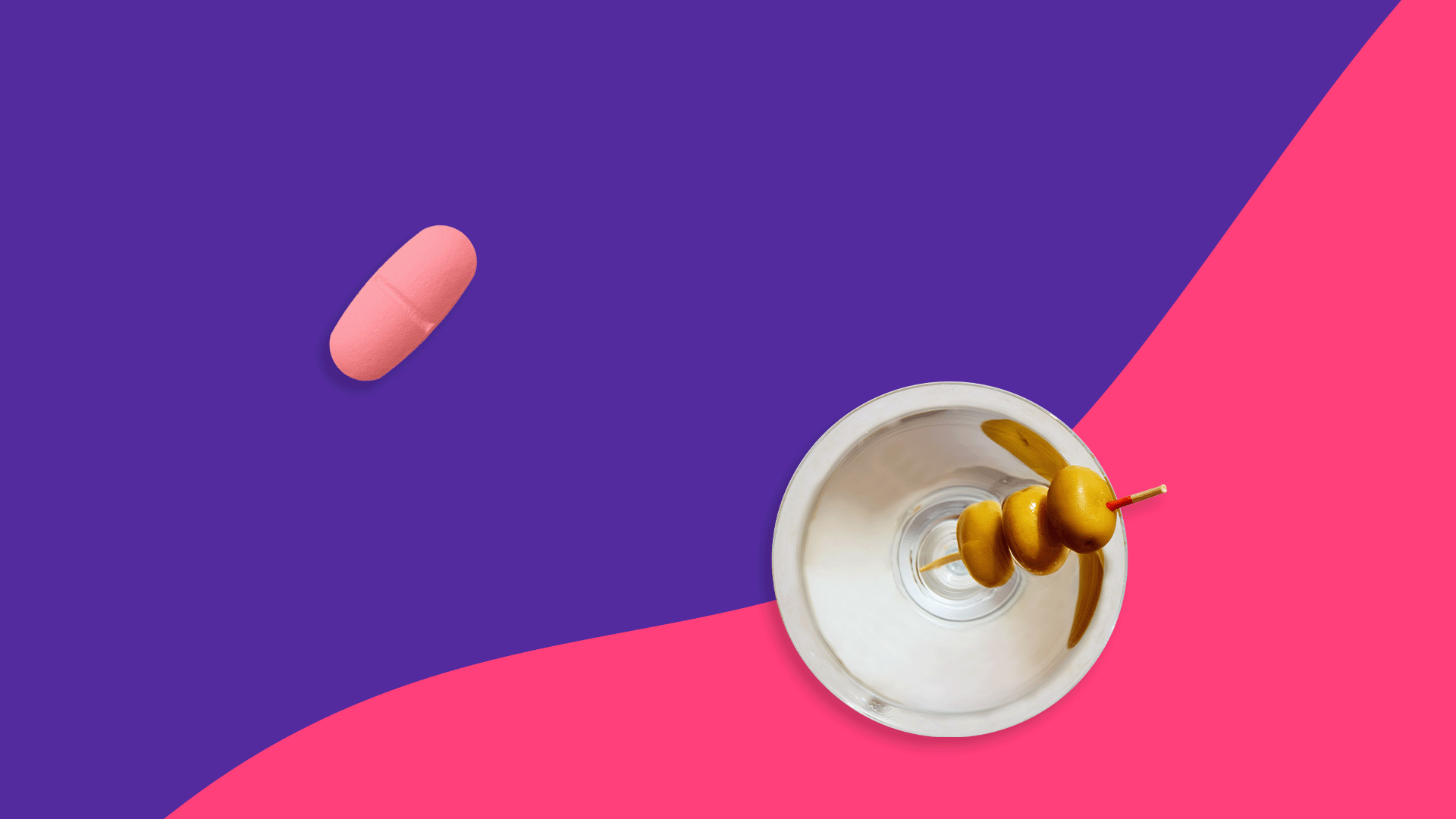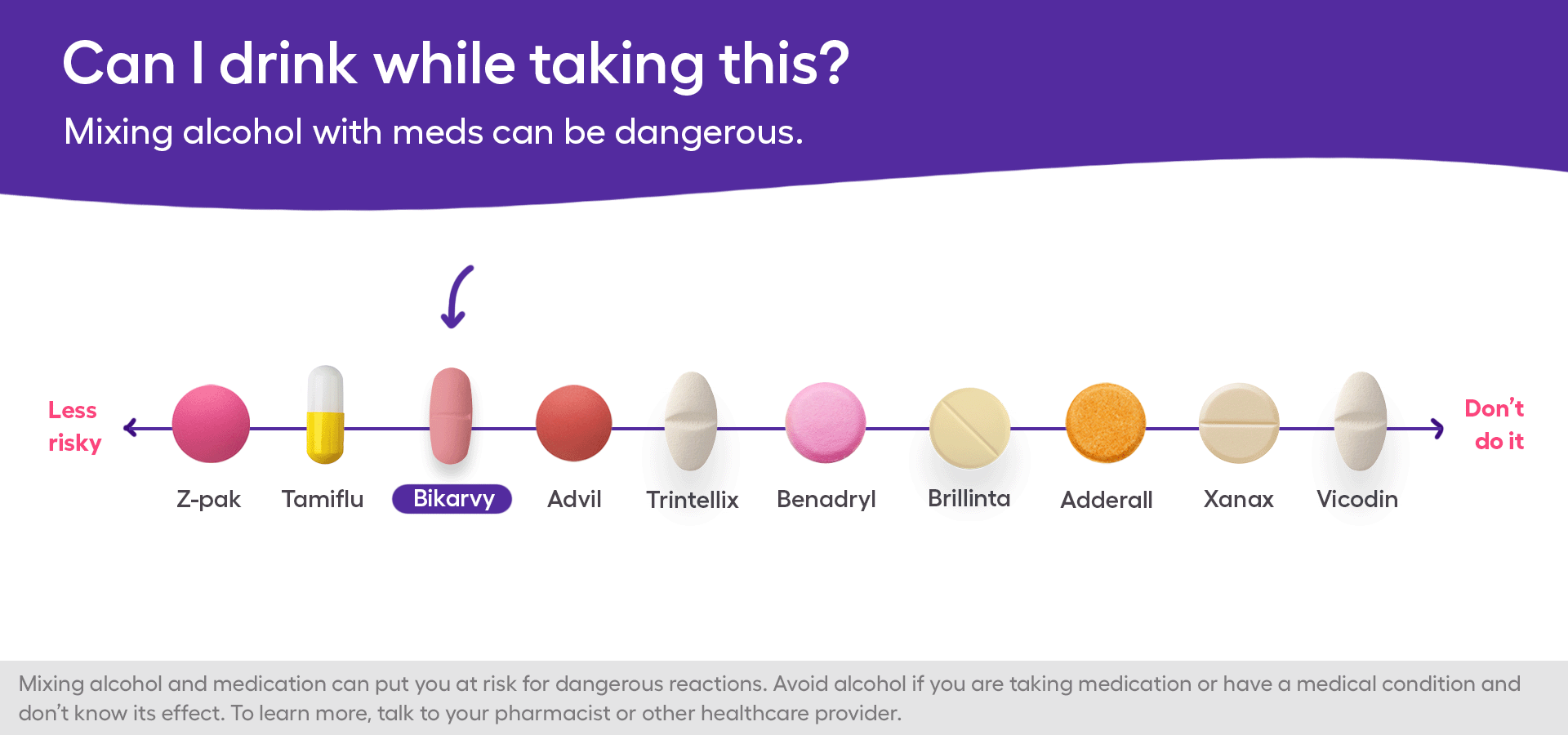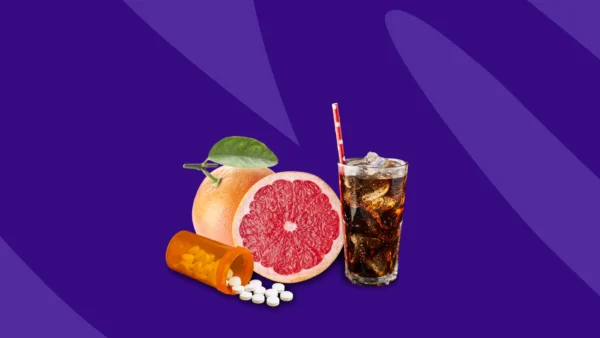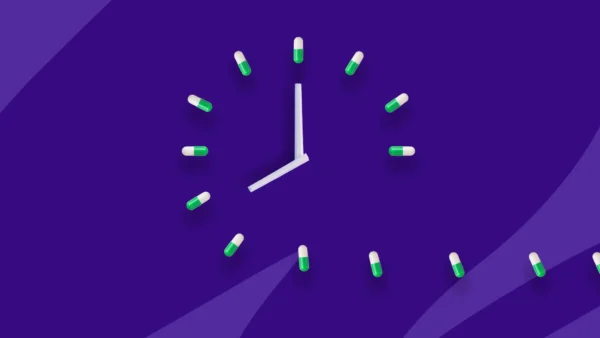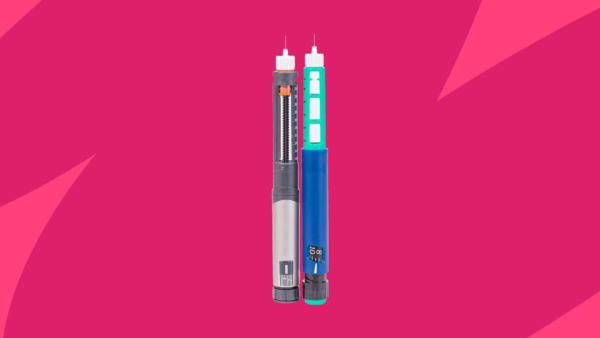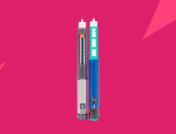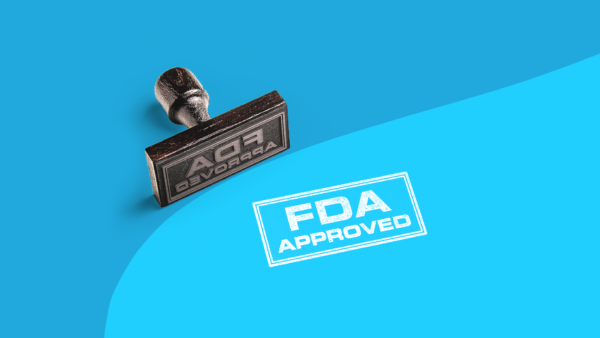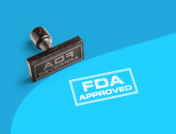There are no warnings or precautions about mixing Biktarvy and alcohol according to the FDA label. There are also no reported drug interactions between HIV drugs, like Biktarvy, and alcohol. HIV drugs will work just as well whether you drink alcohol or not. However, drinking alcohol can indirectly cause problems with HIV treatment and affect overall health for people living with HIV—especially with long-term alcohol use and binge drinking.
HIV and alcohol
HIV, or human immunodeficiency virus, attacks and weakens the immune system. Left untreated, HIV can lead to acquired immunodeficiency syndrome (AIDS), which can increase the risk of life-threatening infections and cancers.
Alcohol has been shown to disrupt immune processes in the body that help fight against infections. Long-term alcohol use, and even alcohol use in moderation, can slow recovery from injuries, promote inflammation, and impair overall defenses to infections and diseases. Alcohol’s effects on the immune system may be particularly damaging to someone who may already have a weakened immune system, such as someone with HIV.
On top of that, people who drink more than the daily or weekly recommended limits are more likely to miss their dose of medication. Because HIV drugs must be taken consistently on a daily basis, it’s best to avoid alcohol. Missing a dose of an HIV drug can increase the risk of HIV resistance, which may require additional HIV drugs to treat. Alcohol use can have negative effects on decision making, influencing whether you’ll engage in risky activities and making it harder to remember to take your medications.
People with HIV are usually on several different medications designed to help stop the growth of the virus and support the immune system. Someone who is living with HIV may also be taking other medications. Alcohol can interact with certain antibiotics and antidepressants, making them less effective or more likely to cause side effects.
Can you take Biktarvy with alcohol?
Biktarvy is a brand-name medication that contains a combination of different active ingredients including bictegravir, emtricitabine, and tenofovir alafenamide.
Biktarvy and drinking alcohol does not involve any drug interactions. If you drink alcohol, Biktarvy will continue to work as intended. However, people with HIV, who may be taking Biktarvy or other antiviral drugs, are not advised to drink alcohol even in moderation. Alcohol use in moderation is defined as two drinks or less per day for men and one drink or less per day for women.
Binge drinking may cause you to vomit or forget to take Biktarvy. The NIAAA defines binge drinking as consuming, within two hours, five or more drinks for men or four or more drinks for women. After vomiting, there may not be enough Biktarvy in your system to sufficiently do its job. You may need to retake a dose of Biktarvy, especially if it’s only been an hour after taking the drug.
Biktarvy can cause side effects such as headaches and nausea. Drinking alcohol may lead to worsened headaches or nausea caused by Biktarvy.
The effects of alcohol and Biktarvy on the liver
Alcohol use can lead to liver damage. People with HIV may also have hepatitis B or C, which are inflammatory conditions of the liver. Drinking alcohol can increase the damage to the liver caused by these conditions.
Many HIV drugs, including Biktarvy, are processed in the liver. Without a healthy functioning liver, HIV drugs may be processed differently, leading to increased side effects. Biktarvy is not recommended for people with severe liver problems.
Some studies suggest that alcohol use can increase the production of cholesterol in the liver, which can cause high cholesterol levels in the blood. HIV drugs like Biktarvy may also cause high cholesterol levels as a side effect. Mixing Biktarvy and alcohol can worsen liver health and overall cholesterol levels.
Clinical trials have shown that Biktarvy can cause elevated liver enzyme levels. However, there were no clinical symptoms of liver injury reported.
The FDA has posted a black-box warning on the label of Biktarvy for potential liver damage in people with hepatitis B. People with hepatitis B have experienced worsened liver damage after discontinuing the use of emtricitabine or tenofovir, the main ingredients found in Biktarvy. Still, the likelihood of liver damage developing after stopping the use of Biktarvy is rare and yet to be reported.
The bottom line
It’s best to avoid mixing Biktarvy and alcohol. Alcohol can weaken the immune system and make it difficult to remember to take your medication, especially after a night of heavy drinking. Talk with your healthcare provider about any concerns you may have about the effects of alcohol on HIV and HIV drugs.



